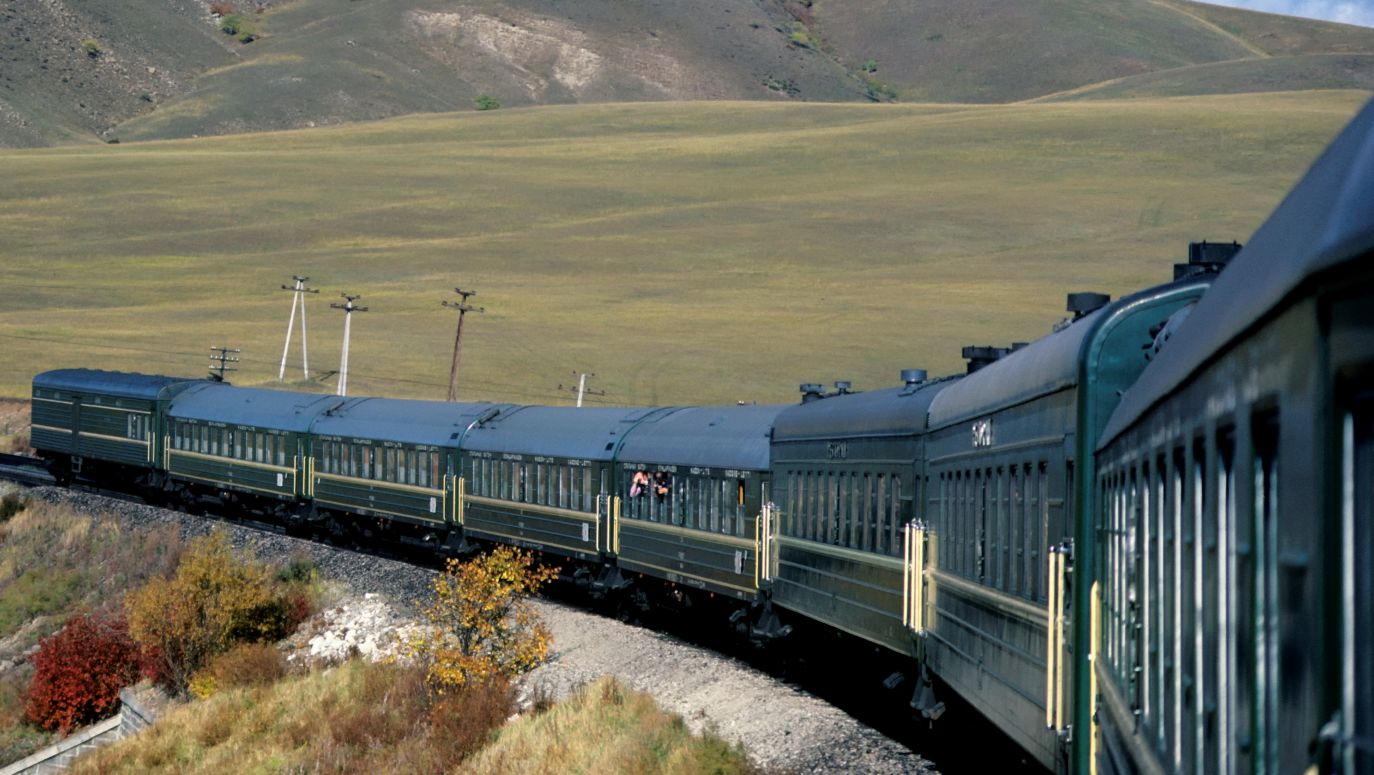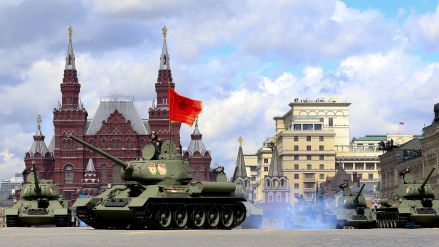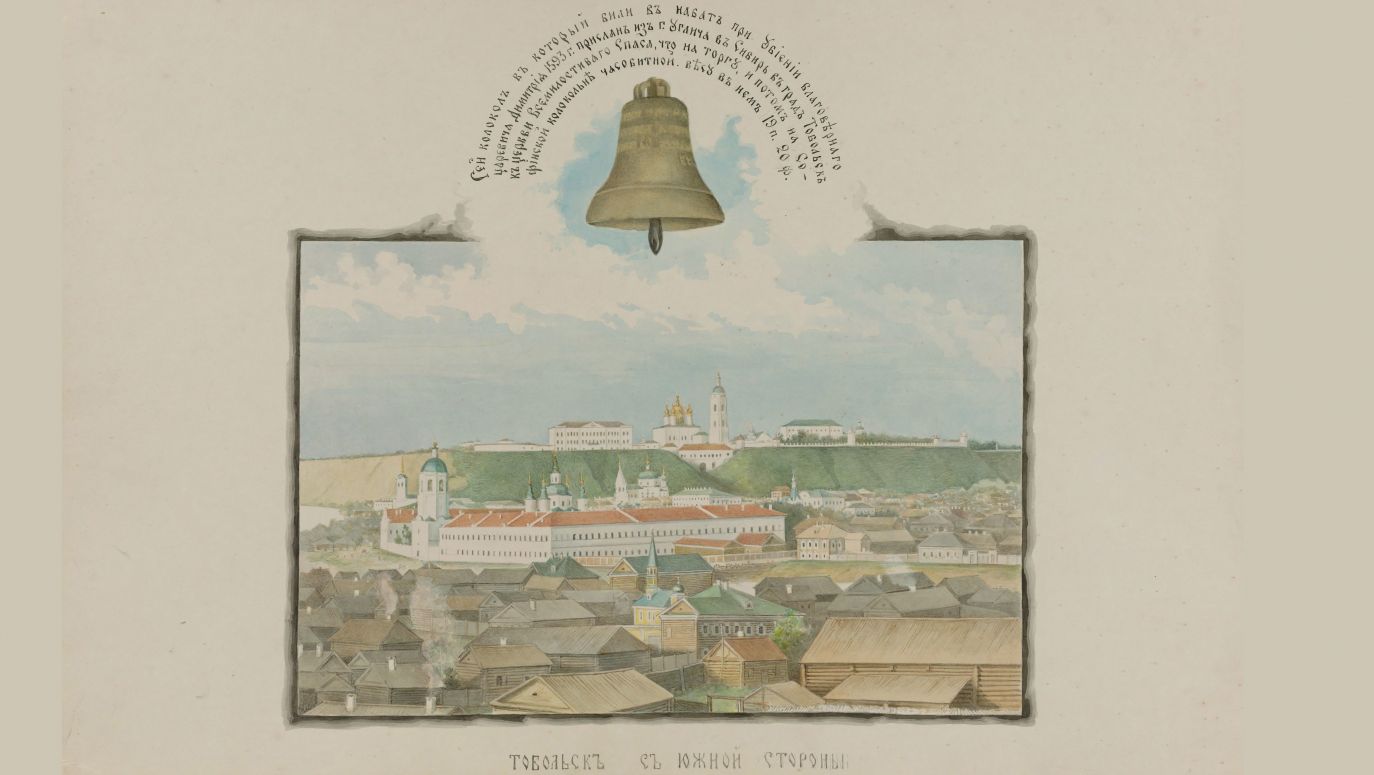The question contained in the title is only seemingly absurd. If you look at the map of the world you can see how, stretched from one end of the globe almost to the other, it overwhelms with its enormity and weight the rest of the Earth. This is the effect of the representation of a sphere (globe) on the surface. Pure geometry makes the 2.166 million square kilometre Greenland appear almost as big as Africa. On many maps the borderlands of Russia appear even on the left/west side - the frontiers of Chukotka through the Bering Strait almost touch America - Alaska and overlap the western hemisphere, as if Russia encircled the whole world. From the American Little Diomedes Island you can see the Russian Ratmanova Island, 3 km away. There you can look into the "future" and "see tomorrow". - For between the islands lies the date change line. So Russia is big, huge. But perhaps this is only an appearance of greatness, and in fact it is a great emptiness and only individual points in a vast nothingness.
If one were to measure the size of Russia by its GDP, it would not be a small country, perhaps even quite a large one. Something like South Korea, but smaller than Italy or Benelux. The USD 1.48 trillion gross domestic product (figures from before the pandemic) does not make much of an impression on the world - it is like two Taiwanes. Some experts, in black, i.e. very optimistic, scenarios, predict that, due to the attack on Ukraine and the war waged there, Russia's economy will go back to the 1995 level. That is, it will be smaller than the Polish or Belgian.
 WAR IN UKRAINE
WAR IN UKRAINE 
Sky over Moscow
Russia is a country of acute, permanent poverty. Four per cent of the population, or 21 million people, live below the minimum subsistence level of USD 165, 35 million have no toilet in their homes and 29 million have no access to running water. Every day of warfare costs this economy at least a billion dollars, on top of the loss of resources that are difficult to replace. Equipment is one thing, but where are the helicopter pilots to replace those killed during the invasion, or the 100 000 IT specialists who have left the country since the war began?
Some point out that Russia is doing very well for itself, because the exchange rate of the rouble is almost back to pre-war levels. However, if sanctions work, no amount of money, reserves accumulated in the National Welfare Fund, gold stocks in vaults will launch the Uralvagonzavod factory, which in theory produces tanks, but now precisely nothing, because there is a shortage of imported components, so everything in Nizhny Tagil has come to a standstill. Diana Kaledina, president of the Baltic Industrial Company, which works for the military complex, says that Russia does not produce such "unattractive things" as bearings, spindles, ball screws, etc. and therefore is unable to carry out almost any production on its own.
Soon all the airlines will also come to a standstill. The great sky above Russia will become empty. Clouds will float by, birds will fly, and occasionally a rocket will fly by. Aeroflot's low-cost airline Pobieda (or Victory) has announced a 40 per cent reduction in its Boeing fleet. Those grounded are to be dismantled for spare parts for those flying.
Russia produces its own aircraft, but even for them there will be a shortage of foreign parts. Yuri Lapin, the head of the IrAero airline, told the authorities that in 5-6 months it will be impossible to repair An-24 and An-26 aircraft. It is true that Russia has stolen (confiscated, in retaliation for sanctions) 500 leased aircraft, but these machines cannot leave the territory of the Federation and without service they will also become useless.









